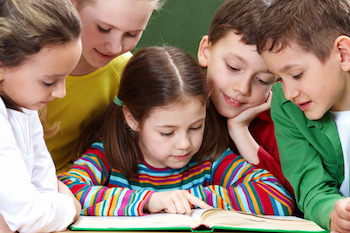As parents, we want to give our children every advantage possible. When school bells ring, the amount of activities presented to them is sometimes overwhelming. How do we help them choose?
Parents often hear complaints from other parents that influence their decision.
“My parents forced me to play an instrument when I was young. I hated it and would never do that to my child.”
In order to avoid a negative attitude towards something, they put off putting their child into an activity until they actually request it. Which usually comes when a child’s friends decide to do something, and it becomes “okay” or the “in” thing to do.
While that can work for some kids, for many others, they simply don’t know what is possible, nor have the understanding of what they will truly like and want to move forward with for the rest of their lives.
Musical prodigies are all around us. Mozart wrote his first symphony at age eight. Stevie Wonder signed with Motown at eleven. What would these people have done had they not been introduced to music until later in life, when it was the acceptable thing to do?
There is growing research that shows there is a window of opportunity for kids to develop their music sensibility. Between the ages of birth through nine, the mental structures and mechanisms associated with processing and understanding music are in the prime stages of development. But it doesn’t have to be lessons alone that gives children their music sensibility; it comes from being exposed to music as well.
A child’s first lesson shouldn’t be structured and in lesson format. Instead, a child’s first “lesson” should simply be exposure to music, instruments, and the range of music in today’s society. Musical games, dancing, singing, or even playing simple instruments like the drums or flute can all encourage kids to develop an interest in how music can impact their lives.
By five, most children have a built in foundation that has prepared them for formalized music lessons. This is when you can introduce lessons to your child, and make it a standard part of their weekly routines. They won’t become a great performer at this point; instead studying music is about furthering their understanding of what is possible in the music world. The most obvious choices are the piano and violin because both give them the ability to hear and play the entire melody, as well as feel how the music sounds.
Music at an early age is extremely important because it boosts your child’s development process, giving them the skills they will use for a lifetime. Music improves language, math, and thinking abilities. And like riding a bike, these skills only grow over time, never to be forgotten in principle.
If you are helping your child make a decision on after school activities, remember the one activity that will carry through a lifetime. Give them the gift of music. Give them the gift of piano.

